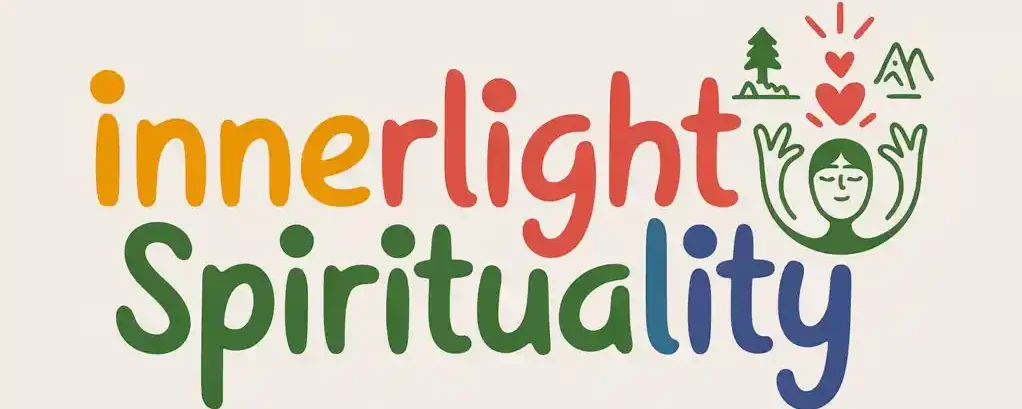14 Bible Verses About Betrayal by Family: A Comprehensive Guide
Betrayal by family is one of the most painful experiences a person can endure. The Bible, a source of profound wisdom, addresses this heart-wrenching topic through various stories and teachings.
From Cain’s jealousy of Abel to the betrayal of Jesus by Judas, the Bible reminds us that betrayal is not new and that even in our darkest moments, God’s love remains steadfast.
In this post, we will explore 14 powerful Bible verses about family betrayal, each offering unique insights.

Key Takeaways:
- Betrayal by family is a recurring theme in the Bible, showing that even the closest bonds can be broken by sin.
- Jealousy and envy are common causes of betrayal, as seen in the stories of Cain and Abel or Joseph and his brothers.
- God’s faithfulness never wavers, even when human relationships fail us.
- Forgiveness is essential, as it brings healing and reconciliation despite the pain caused by betrayal.
- The Bible warns that following Christ may lead to division within families, but God’s reward is eternal.
- Betrayal often leads to growth: Biblical stories show how trials caused by betrayal refine our character and deepen our dependence on God.
- God offers justice: The Bible reassures us that God sees every wrong and will bring justice in His time.
- We are called to love others unconditionally, even those who betray us.
- Healing from betrayal is possible through prayer, trust in God, and seeking His guidance.
- The Bible encourages us to guard our hearts against bitterness and resentment after being betrayed.
1. The Story of Cain and Abel: A Tale of Sibling Rivalry
Genesis 4:8 – “One day Cain suggested to his brother, ‘Let’s go out into the fields.’ And while they were in the field, Cain attacked his brother, Abel, and killed him.”
The story of Cain and Abel is a sobering reminder of how jealousy can destroy even the closest bonds. Cain’s envy over God favoring Abel’s offering led him to commit an unthinkable act—murdering his own brother. This verse teaches us to guard our hearts against jealousy and seek God’s help in overcoming feelings of resentment.
Betrayal often begins with unchecked emotions, such as envy or anger. The story also reminds us that God sees every act of betrayal and holds us accountable for our actions.
This tragic story also highlights how sin can grow when left unchecked. Cain had an opportunity to repent when God warned him about his anger (Genesis 4:6-7), but he chose to let bitterness consume him instead. This teaches us the importance of addressing negative emotions before they lead to destructive actions.
2. Joseph’s Brothers Betray Him: A Story of Jealousy and Redemption

Genesis 37:28 – “So when the Ishmaelite traders came by, Joseph’s brothers pulled him out of the cistern and sold him to them for twenty pieces of silver.”
Joseph’s brothers betrayed him out of jealousy for their father’s favoritism toward him. They sold him into slavery, thinking they had rid themselves of their “problem.” However, God used this betrayal for good—Joseph rose to power in Egypt and eventually saved his family during a famine.
This verse highlights how God can turn even the worst betrayals into blessings. It encourages us to trust in His plan, knowing that He can bring redemption from any situation.
Joseph’s story also teaches us about forgiveness. Despite being betrayed so cruelly by his own brothers, Joseph chose to forgive them when they came to Egypt seeking help years later (Genesis 50:20). His response shows how forgiveness can lead to healing and restoration within families.
3. The Parable of the Prodigal Son: Forgiveness Within Families
Luke 15:28 – “The older brother was angry and wouldn’t go in. His father came out and begged him.”
The parable of the prodigal son illustrates both betrayal and forgiveness within families. While the younger son betrayed his father by squandering his inheritance, the father welcomed him back with open arms when he repented. However, the older brother struggled with bitterness and resentment.
This story teaches us about unconditional love—the kind that forgives even when it’s undeserved. It also warns against harboring resentment toward those who have wronged us.
This parable reminds us that God’s love is greater than any betrayal we may face within our families. It also challenges us to extend that same grace to others, even when it feels difficult or unfair.
4. Jesus Warns of Familial Betrayal
Matthew 10:21 – “Brother will betray brother to death, and a father his child; children will rebel against their parents and cause them to be put to death.”
Jesus warned His disciples that following Him would lead to division within families. This verse reflects the reality that loyalty to Christ may result in betrayal by loved ones.
While this truth is difficult to accept, it reminds believers to prioritize their relationship with God above all else. Even when family relationships are strained or broken because of faith, God promises eternal rewards for those who remain faithful.
This verse also encourages believers not to be surprised by betrayal but instead to rely on God’s strength during such trials.
5. The Importance of Honoring Parents

Exodus 20:12 – “Honor your father and mother. Then you will live a long, full life in the land the Lord your God is giving you.”
Despite instances of betrayal within families, this commandment emphasizes the importance of honoring parents regardless of circumstances. It reminds us that respect for family is part of God’s design for healthy relationships.
Honoring parents doesn’t mean condoning their wrong actions but choosing to treat them with love and respect as God commands.
This verse also serves as a reminder that obedience to God’s commands brings blessings—not just for individuals but for entire families as well.
6. The Consequences of Dishonoring Parents
Proverbs 30:17 – “The eye that mocks a father and despises a mother’s instructions will be plucked out by ravens of the valley and eaten by vultures.”
This verse vividly illustrates the consequences of dishonoring parents. While symbolic in nature, it underscores how seriously God views respect within families.
Betrayal often starts with small acts of disrespect or disobedience within families. This verse serves as a warning to guard against such attitudes.
It also reminds us that our actions toward our parents reflect our relationship with God Himself (Ephesians 6:1-3).
7. Betrayal Within Kinship
Jeremiah 12:6 – “Your relatives, members of your own family—even they have betrayed you; they have raised a loud cry against you.”
Jeremiah experienced betrayal from his own family members during his prophetic ministry. This verse reminds us that loyalty cannot always be expected from those closest to us.
However, it also encourages believers to place their ultimate trust in God rather than people.
Jeremiah’s experience shows how God’s strength can sustain us even when we feel abandoned or betrayed by those we love most.
8. Envy Leading to Betrayal
Genesis 37:18-20 – “But they saw him in the distance… ‘Come now, let’s kill him.’”
Joseph’s brothers’ envy led them down a dark path—a reminder that unchecked jealousy can lead to destructive actions within families.
This verse encourages vigilance over our thoughts and emotions so they don’t lead us into sin.
It also highlights how God’s plans cannot be thwarted by human betrayal (Romans 8:28).
9-14 Additional Verses & Lessons
- Absalom betraying David (2 Samuel 15:12) teaches about ambition leading to familial division.
- Judas betraying Jesus (Luke 22:47-53) shows how greed destroys trust.
- Amnon betraying Tamar (2 Samuel 13) highlights lust-driven deceit.
- Ezekiel warns about conspiracies (Ezekiel 22:25) destroying families.
- Mark echoes Christ’s warning (Mark 13:12) on familial discord due to faith.
FAQs About Betrayal by Family in the Bible
1. What does the Bible say about family betrayal?
The Bible acknowledges that betrayal by family is a painful reality. It provides examples like Cain and Abel, Joseph and his brothers, and even Jesus being betrayed by Judas. These stories remind us that betrayal has existed since the beginning of time but also show how God’s love and faithfulness can bring healing and redemption.
2. How should I respond to family betrayal according to the Bible?
The Bible teaches us to respond to betrayal with forgiveness, love, and prayer. While it is natural to feel hurt, God calls us to forgive others as He forgives us (Ephesians 4:32). Trusting in God’s justice and seeking His guidance through prayer can help you heal and move forward.
3. Why does the Bible emphasize forgiveness after betrayal?
Forgiveness is emphasized because it frees us from bitterness and resentment. Holding onto anger only harms us, while forgiveness brings peace and healing. Jesus demonstrated ultimate forgiveness when He forgave those who betrayed and crucified Him (Luke 23:34). By forgiving others, we reflect God’s grace in our lives.
4. Are there consequences for betraying family in the Bible?
Yes, the Bible shows that betrayal often leads to serious consequences. For example, Cain faced God’s judgment after killing Abel (Genesis 4:11-12), and Absalom’s rebellion against his father David led to his own death (2 Samuel 18:9-15). These stories highlight that betrayal damages relationships and can lead to personal suffering.
5. Can family relationships be restored after betrayal?
Yes, the Bible provides examples of restoration after betrayal. Joseph forgave his brothers for selling him into slavery, leading to reconciliation and healing within their family (Genesis 45:4-15). Restoration is possible when there is genuine repentance, forgiveness, and a willingness to rebuild trust with God’s help.
6. Why does Jesus warn about division within families?
Jesus warns in Matthew 10:21 and Mark 13:12 that following Him may cause division within families because not everyone will accept His teachings. Loyalty to Christ may lead to rejection or betrayal by loved ones, but Jesus encourages believers to remain faithful, trusting in God’s eternal reward.
7. How can I heal from the pain of being betrayed by family?
Healing begins with prayer, surrendering your pain to God, and asking for His comfort and guidance. Reading scriptures about forgiveness and God’s faithfulness can also provide strength. Surround yourself with supportive people who encourage you in your faith journey.
8. Does God understand the pain of betrayal?
Yes, God deeply understands betrayal because Jesus experienced it firsthand when Judas Iscariot betrayed Him (Luke 22:47-48). Jesus’ suffering shows that He empathizes with our pain and offers comfort during times of betrayal.
9. How can I prevent bitterness after being betrayed?
To prevent bitterness, focus on forgiving the person who hurt you and trusting God to handle justice (Romans 12:19). Pray for strength to let go of anger and replace it with peace. Remember that holding onto bitterness only harms you emotionally and spiritually.
10. What lessons can I learn from biblical stories of betrayal?
Biblical stories teach us that:
- Betrayal often stems from jealousy or selfishness.
- Forgiveness is essential for healing.
- God can turn even painful situations into blessings.
- Trusting in God brings peace during trials.
These lessons remind us that no matter how deep the pain of betrayal is, God remains faithful.
11. Does the Bible promise justice for those who are betrayed?
Yes, the Bible promises that God sees every act of wrongdoing and will bring justice in His perfect timing (Romans 12:19). While human justice may fail, we can trust that God will right every wrong.
12. Can trusting God help me rebuild relationships after betrayal?
Absolutely! Trusting God allows Him to guide your heart toward forgiveness and reconciliation. With prayer, patience, and a willingness to heal, broken relationships can be restored under God’s grace.

Samantha is the author of Inner Light Spirituality, where she shares insights and guidance to inspire others on their spiritual journeys. With a passion for exploring various spiritual traditions, Samantha aims to make spirituality accessible and relatable. Through her writing, she encourages readers to embrace their unique paths and find meaning in their experiences. When not writing, she enjoys meditating and connecting with nature.







